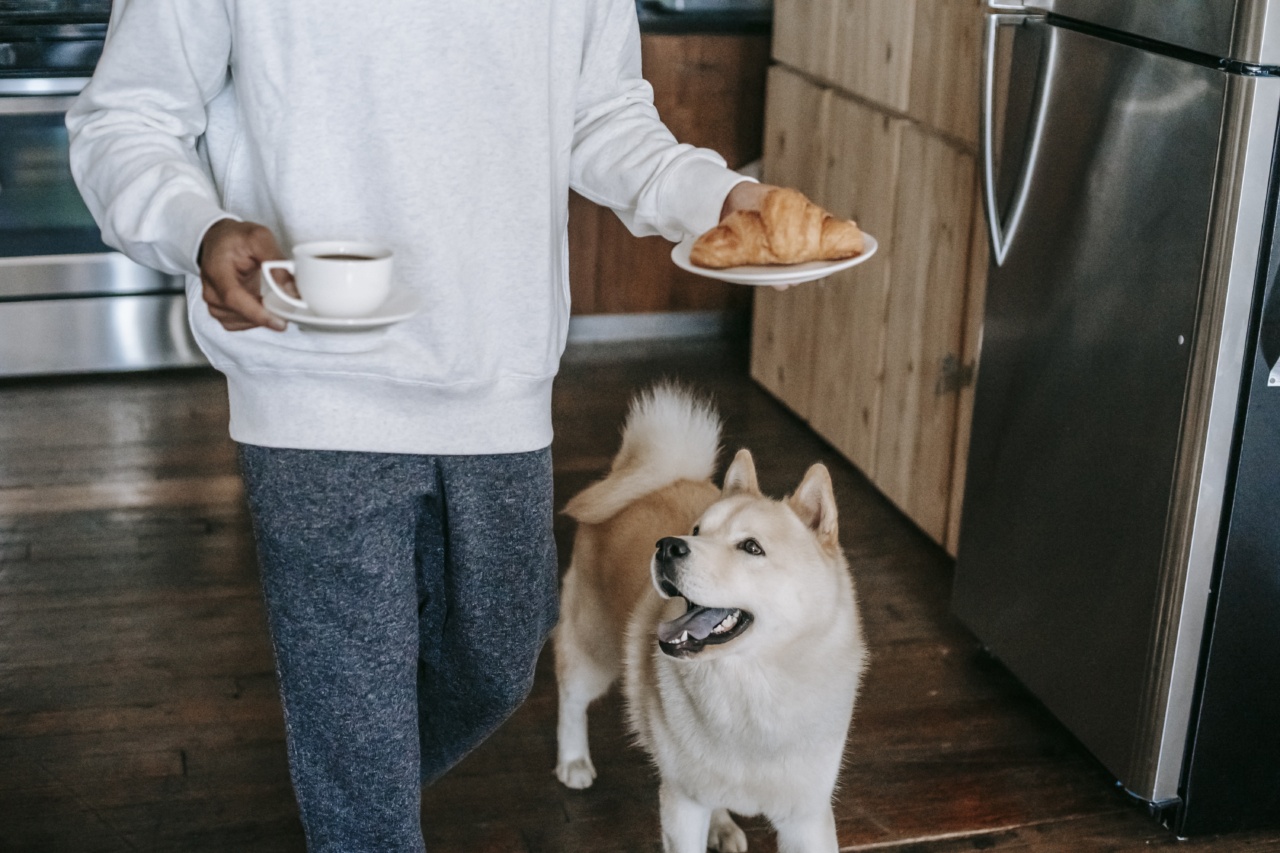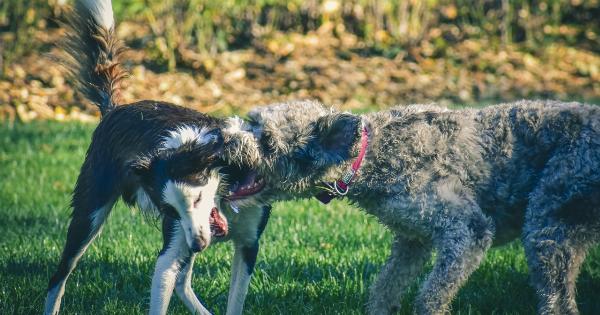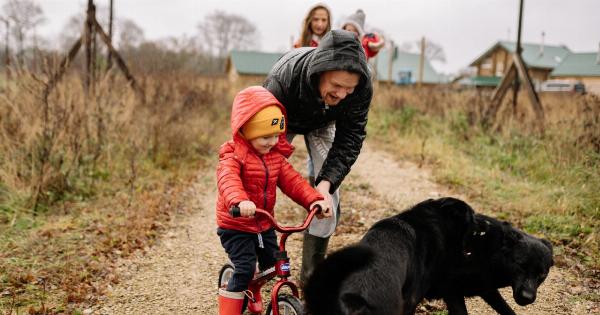Do you find yourself constantly battling with your furry friend over stolen snacks? It can be frustrating and even dangerous for your dog to snatch food off the table or counter.
However, with some training and preventive measures, you can put an end to this behavior. In this article, we will discuss effective strategies to stop your dog from stealing food.
Understanding Why Dogs Steal Food
Dogs are natural scavengers, and their keen sense of smell makes them excellent at locating food.
They also have a strong instinct to explore their environment and are often motivated by the thrill of trying to obtain something they shouldn’t have. Your dog might be stealing food due to various reasons, including:.
- Opportunity: If your dog frequently finds unattended food within reach, they will quickly learn that stealing is rewarding.
- Hunger: Dogs that are not adequately fed may resort to stealing food as a way to satisfy their hunger.
- Attention-seeking: Some dogs learn that stealing food triggers a reaction from their owners, even if it’s negative attention.
- Boredom: Dogs with excess energy may resort to stealing food as a form of entertainment or to alleviate their boredom.
- Counter-surfing: Certain breeds are notorious for their ability to jump on counters or tables to snatch food left unguarded.
10 Strategies to Stop Food Theft
Now that we understand why dogs steal food, let’s explore some effective strategies to put an end to this behavior:.
1. Supervise and Restrict Access
One of the simplest ways to prevent your dog from stealing food is to supervise them closely and restrict their access to areas where food is present.
Keep your dog out of the kitchen when you’re cooking or dining, and use baby gates or closed doors to create barriers if necessary.
2. Properly Store Food
Make sure all food items are securely stored in airtight containers or locked cabinets. Store garbage cans in areas that are inaccessible to your dog to avoid temptation.
3. Reinforce the “Leave It” Command
The “leave it” command is an essential part of your dog’s training repertoire. Practice this command regularly by gently telling your dog to leave a treat on the ground or in your hand.
Reward them with praise or a substitute treat when they comply.
4. Use Positive Reinforcement
Positive reinforcement is a powerful tool in dog training. Whenever your dog refrains from stealing food or responds to the “leave it” command, reward them with treats, praise, or playtime.
This positive association will encourage them to repeat the desired behavior.
5. Provide Sufficient Mental and Physical Stimulation
Boredom often leads to mischievous behavior. Make sure your dog receives plenty of mental and physical stimulation through regular exercise, interactive toys, and puzzle feeders. A tired and happy dog is less likely to resort to food theft.
6. Teach Boundaries with Counters and Tables
If your dog has a habit of counter-surfing, teach them to stay away from these areas.
Use commands like “off” or “leave it” consistently and consider using deterrents such as aluminum pans or double-sided tape on the edges of countertops.
7. Never Reward Food Theft
Consistency is key when training your dog. If your dog succeeds in stealing food, resist the urge to chase or scold them, as this may inadvertently reinforce their behavior. Instead, redirect their attention to an appropriate toy or activity.
8. Make “Quiet Time” during Meals
Teach your dog to relax during mealtime by designating a specific spot for them to stay while you eat. Use positive reinforcement to reward them for staying in that spot without begging or trying to snatch food.
9. Address Hunger or Nutritional Needs
If your dog is stealing food due to hunger or an inappropriate diet, consult with your veterinarian to ensure they are receiving proper nutrition.
Adjusting their feeding schedule or switching to a more satiating diet can help curb their desire to steal food.
10. Seek Professional Help if Needed
If your dog’s food theft habit persists despite your best efforts, consider consulting a professional dog trainer or animal behaviorist.
They can provide personalized guidance and develop a training plan tailored to your dog’s specific needs.
Conclusion
Stopping your dog from stealing food requires patience, consistency, and understanding.
By implementing the strategies outlined in this article, you can help your four-legged companion overcome their food-stealing habits and create a more harmonious environment in your home.
























